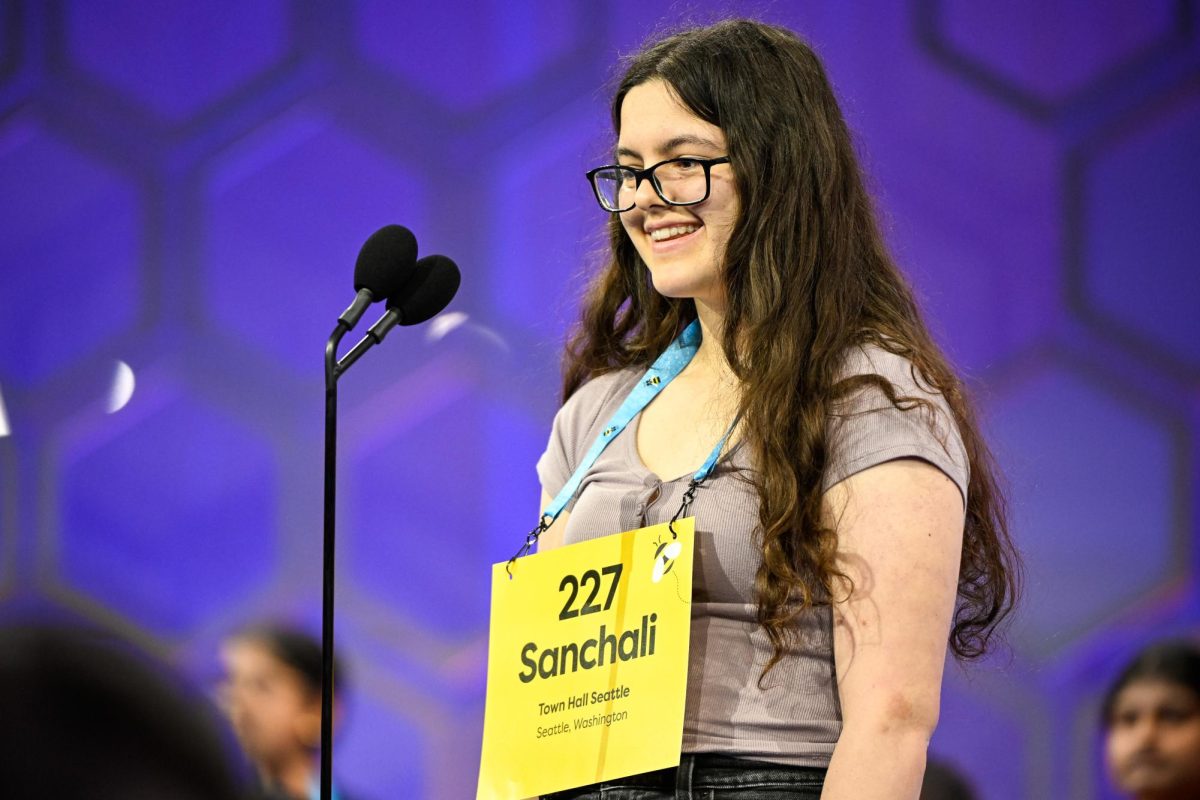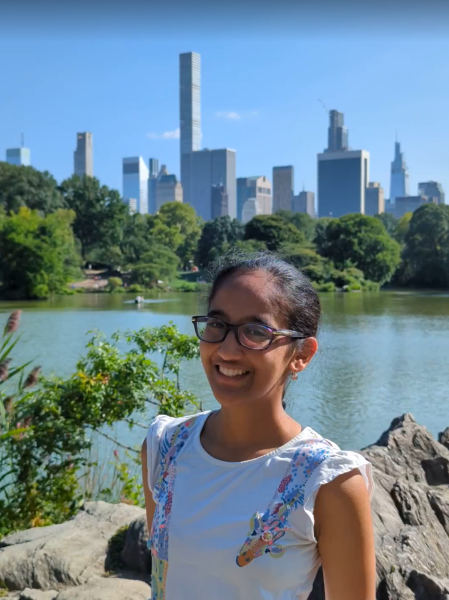In 7th grade, I remember being mistakenly called Sanchali and wondering who this “Sanchali” could be. My answer came a year later when Sanchali B. ’27 and I were two of the final three spellers in the school spelling bee. Her preparedness was impressive, as she rattled off different words’ spellings. I went on to achieve relative spelling bee success later on in the year with a finish in the top five spellers in the region. Satisfied with my performance, I was prepared to never think about spelling again.
This quickly changed in early June of 2023, when my friend sent me an article about Sanchali competing in the Scripps National Spelling Bee. I felt a huge sense of pride, as I understood the hard work and dedication it took to achieve such a feat. Luckily, Sanchali was able to speak to Tatler about it herself.
Sachi T. ’26 (ST): Could you give the readers a quick introduction to yourself?
Sanchali B. ’27 (SB): Hi, I’m Sanchali, and I’m in 9th grade. I was a semifinalist in the Scripps National Spelling Bee and tied for 22nd place overall.
ST: Can you describe the process of reaching the national level? What tests did you have to take? How many bees did you compete in?
SB: First, there’s a classroom bee, which everyone at the Lakeside Middle School competes in during English class. Then, the winners of that go to the school bee. The winner of the school bee takes an online test, and those with the top 50 scores on that test go to regionals at Town Hall Seattle. If you win regionals, you go to nationals.
ST: What made you interested in spelling bees?
SB: Honestly, I’ve always liked reading, words, and language. My earliest memory of anything spelling-related was in 5th grade, when we watched a movie called Akeelah and the Bee, and I thought, “Oh, that sounds so fun!” But I never really considered the spelling bee a thing I would do until 7th grade, when I got third place in the school. Even then, I never expected to make it this far.
ST: What did you do to make it all the way to Scripps nationals? Did you have a daily spelling routine? Did you study official spelling lists on the bus to school like I did?
SB: I actually studied the lists on the bus rides to school — just like you. Every morning, I would do a pack of 100 words from an app with the official words. After I won the regionals, I asked what I should do to study beyond that. And they told us to get a spelling coach. So, we hired this guy named Scott, who was really passionate about spelling. I’d call him for one hour every week, and he would quiz me on words from different language families. He would send these really long emails with packets with practice. It was very stressful but also helpful.
ST: Do you have any favorite moments from the national bee?
SB: The whole thing was super cool from the second we showed up. It was in this big convention center/hotel, and there was a whole hall called The Hall of the Champions with banners of previous winners. There were cameras, screens, and a newscaster booth. I think my favorite moment overall was during a break before the semifinals. We were all really tired, and I remember talking to the people next to me and learning all about their interesting stories.
ST: I’ve heard arguments that spelling bees are useless and reinforce the idea of memorization over learning. What are your thoughts on this point of view?
SB: I see where they’re coming from. Honestly, you’re not memorizing words. If you are, you’re not going to get really far. There’s a really small chance that the word you memorized will be selected. In terms of memorization, what you’d be memorizing is [word] stems and their meanings. The more important thing to learn about is rules from different language families. I remember a lot of my studying consisted of learning, for example, how French makes this sound, and how German consonants work.
ST: What did you learn from the process of competitive spelling?
SB: I think I learned a lot about myself and how I study, since I had to memorize and learn a lot in a short period of time. It was useful and will help me in the future, in terms of studying.
ST: Do you have any plans for the future in relation to skills you got from the spelling bee? Future spelling endeavors? A rekindled interest in reading?
SB: Honestly, I don’t know. There aren’t many other spelling opportunities. I’m definitely still interested in words, reading, and languages, but I don’t know what I’m going to do with that.
ST: Just for fun, what’s the hardest word you know how to spell?
SB: Oh my gosh, I have a bunch, but I’ll pick two. “Chthonic,” which means living in the underworld. It starts with a really obscure silent letter. And then “Llullaillaco,” which is a mountain in South America.
This interview has been edited for clarity.


